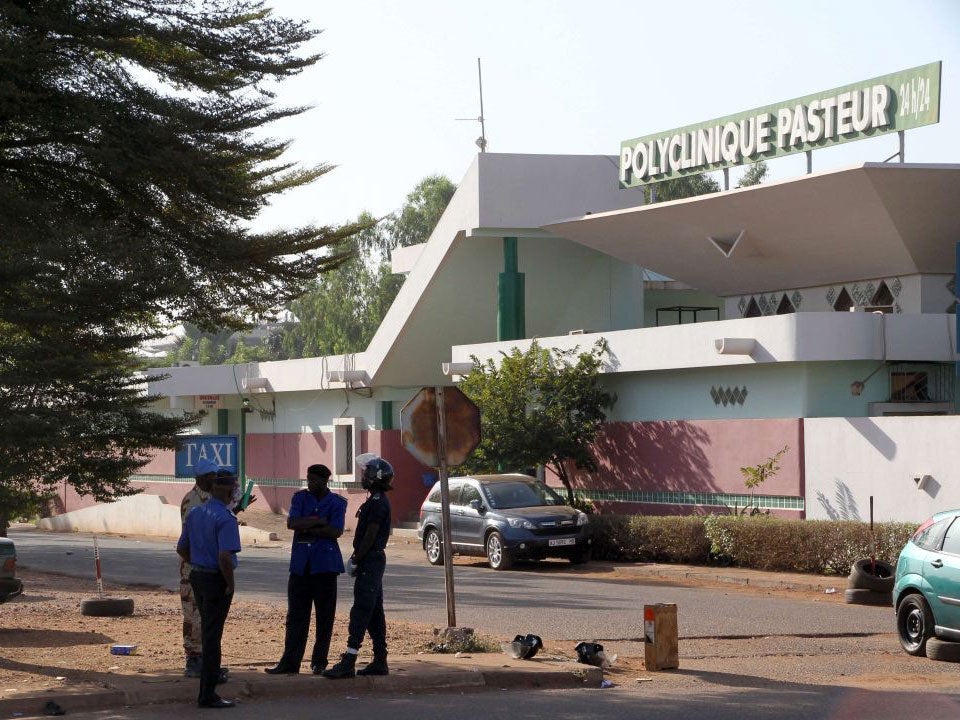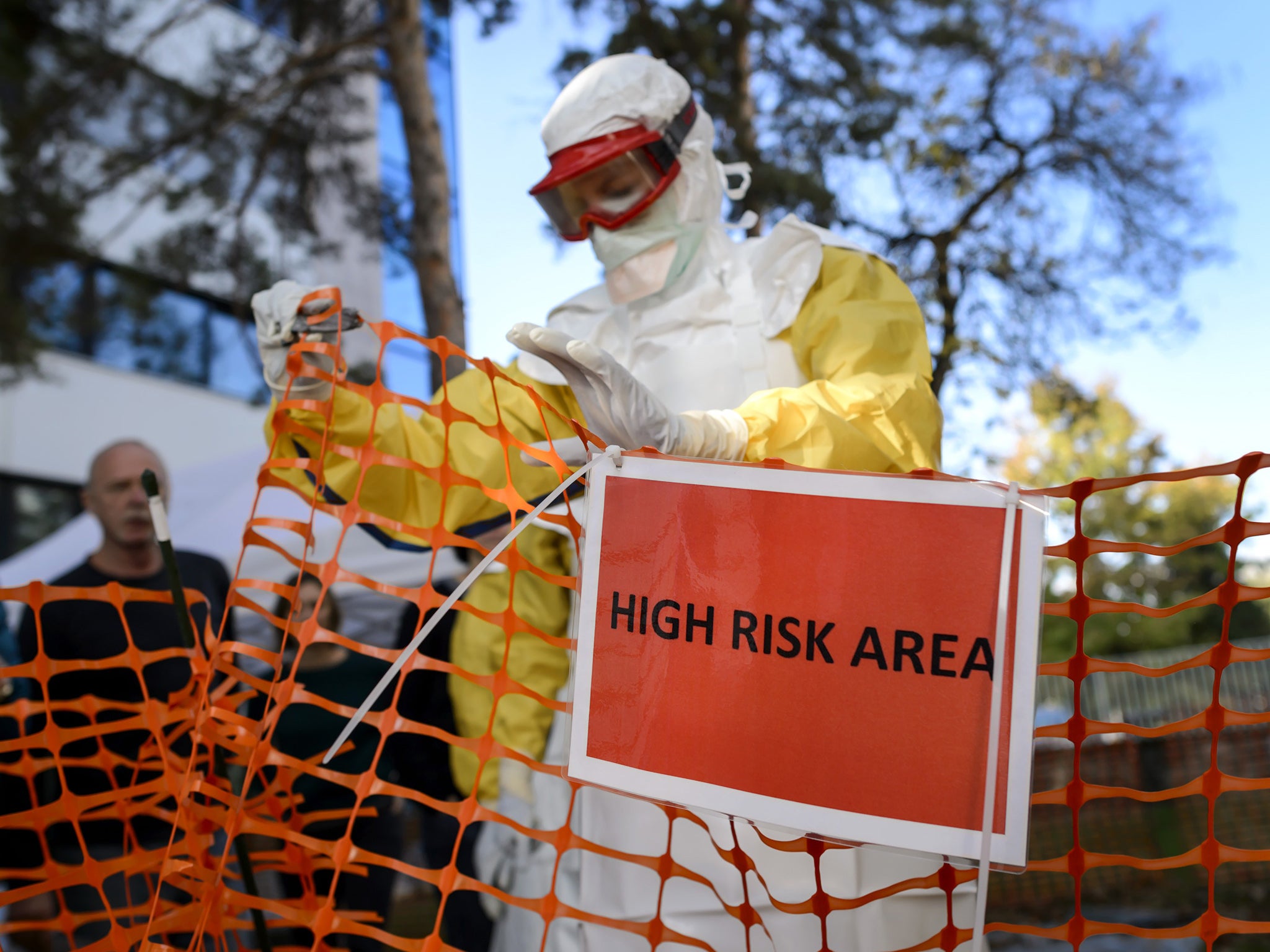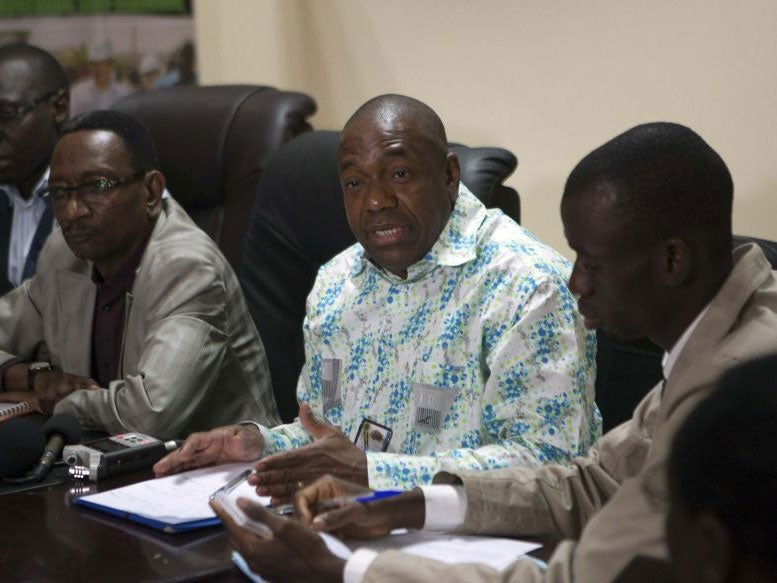Ebola virus: Second outbreak in Mali as imam and nurse who treated him die of disease
Health officials had believed the spread of the virus was under control

Mali is battling its second Ebola outbreak after an elderly imam and a 25-year-old nurse who treated him died of the disease.
Tests did not confirm the cause of their illness until Tuesday, when the World Health Organisation (WHO) had already released a statement saying “confidence was growing” that the deadly virus would not spread in Mali almost three weeks after the death of its first victim.
The latest fatalities are not believed to be linked to the two-year-old girl who died from Ebola on 24 October after travelling from Guinea – one of the three countries worst-hit by the disease.
The news is an alarming setback for Malian health authorities trying to shield the country from the epidemic, which has killed almost 5,000 people so far.
Dozens of staff at the clinic where the imam died, in the capital of Bamako, have been quarantined along with the victims’ friends and families.
The 70-year-old imam, from the border town of Kouremale, was never tested for Ebola and his body was washed in Mali before being returned to Guinea for burial without any precautions, raising the risk of transmission.

Officials are searching the city of two million for those who helped prepare the body after he died on 27 October.
The head of Polyclinique Pasteur said that when the imam arrived late at night two days before, he was too ill to tell staff information about his symptoms.
“His family did not give us all the information that would have led us to suspect Ebola,” Dramane Maiga told the Associated Press.
Unaware of the cause of his illness, doctors at the Bamako hospital treated him for renal insufficiency, which can result from kidney disease but is also a symptom of late-stage Ebola, when vital organs begin to shut down.
The nurse was hospitalised on Saturday but officials did not alert the health ministry until Monday morning and by the time the test results came back on Tuesday, she was already dead.
Two aid workers said that another person who lived in the house where the imam stayed in Bamako had died this week and a doctor at the Polyclinique Pasteur is also believed to have contracted Ebola.

“For the moment we have 30 people under observation at Polyclinique Pasteur - including 16 patients - along with 45 family members,” said Ousmane Doumbia, secretary-general for the Malian health ministry.
The latest outbreak demonstrates the continued difficulty of stopping the transmission of Ebola and diagnosing the disease, which shares early symptoms with many less serious illnesses.
Mali's first outbreak started with a two-year-old girl who had travelled with relatives on a bus from Guinea to Mali with a bleeding nose. About 50 other people who had possible contact with her remain under observation in Kayes, 375 miles from Bamako.
They will be released from quarantine in four days if they show no symptoms.
In a statement on Tuesday, WHO said the toddler was being taken away from her home country into the care of relatives because her father – a health care worker – grandfather, grandmother and two uncles had died.
The first deaths were classified as “unknown causes” and the father fled his village because he was deemed the victim of a bad-luck “curse”.
It was not until the final men who died tested positive for Ebola that officials realised that was the probable cause of all illness in the family.
A spokesperson for WHO said an isolation facility at the Centre for Vaccine Development in Bamako was available for use, as well as biosafety level three laboratory to conduct Ebola tests.
Additional reporting by agencies
Join our commenting forum
Join thought-provoking conversations, follow other Independent readers and see their replies
Comments